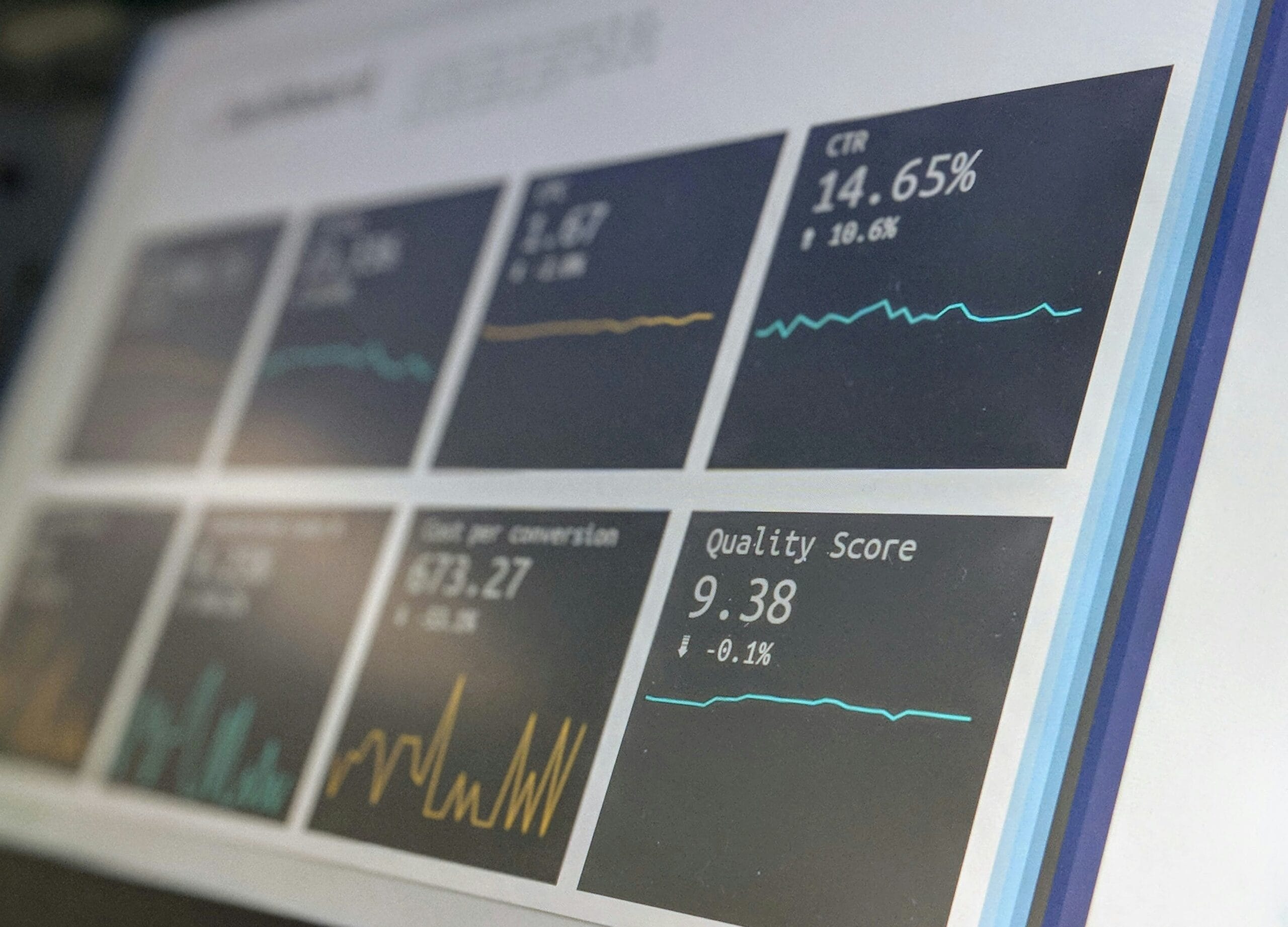Introduction to Conspiracy Theories
Conspiracy theories are generally defined as explanatory frameworks that propose alternative interpretations of events, suggesting that powerful actors, often hidden from public view, engage in secretive behavior aimed at achieving significant goals. These theories have proliferated within various cultures, especially in times of social upheaval or uncertainty, as individuals seek to explain complex situations. The framework of conspiracy theories often involves a distrust of authority, leading individuals to gravitate toward narratives that challenge conventional understanding and mainstream narratives.
The prevalence of conspiracy theories in contemporary society can be attributed to several factors, including increased access to information through digital platforms and a heightened awareness of historical events that support such beliefs. These theories can range from those with minimal impact to those that influence significant social actions and political movements. This spectrum demonstrates the importance of recognizing the psychological mechanisms driving the attraction to conspiratorial thinking.
More informationThe Danger of Echo Chambers in the Digital AgeUnderstanding the psychological underpinnings of conspiracy theories is critical for several reasons. First, the belief in conspiracies can lead to significant societal consequences, such as widespread mistrust in institutions, reduced civic engagement, and potential harm to public health, as exemplified during health crises. Furthermore, the irrationality often exhibited in the acceptance of these theories illustrates common cognitive biases that shape an individual’s perception of reality. By examining these cognitive biases, such as confirmation bias, we can gain insights into how individuals form and maintain beliefs in the face of contradictory evidence.
This exploration into the psychology of conspiracy theories sets the stage for a deeper understanding of the cognitive biases and psychological patterns that contribute to the formation and persistence of these beliefs. A comprehensive analysis of these factors will help shed light on the broader cultural implications of conspiracy theories in contemporary society.
The Role of Cognitive Bias in Conspiracy Theories
Cognitive biases play a significant role in the formation and perpetuation of conspiracy theories. These biases are systematic patterns of deviation from norm or rationality in judgment, leading individuals to interpret information in ways that confirm their pre-existing beliefs. One prevalent bias is confirmation bias, which occurs when individuals selectively gather or recall information that supports their views while disregarding evidence that contradicts their beliefs. For instance, a person convinced that a particular political event was staged may focus solely on media reports that align with this theory while ignoring credible sources that offer alternative explanations.
More informationConspiracy Theories and Personal Liberty: A Complex RelationshipAnother relevant cognitive bias is proportionality bias. This bias leads individuals to believe that significant events must have equally significant causes. Consequently, events such as natural disasters or political upheavals are often attributed to vast conspiracies rather than random occurrences or complex social factors. For example, when a catastrophic event occurs, some may immediately suggest a hidden agenda behind it, perceiving that the scale of the event necessitates a corresponding malevolent plot rather than an acknowledgment of chance or mismanagement.
Illusory correlation is another cognitive bias that affects how conspiracy theories are formed. This phenomenon occurs when individuals erroneously perceive a relationship between two unrelated events. For example, a person might assert that a correlation exists between a specific health issue and the introduction of a new vaccine, despite scientific evidence to the contrary. Such misconceptions often stem from anecdotal experiences or sensationalized media narratives that feed into existing fears and anxieties.
Understanding these cognitive biases is crucial for dissecting how individuals arrive at and cling to conspiracy theories. By recognizing the influence of confirmation bias, proportionality bias, and illusory correlations, we can better comprehend the psychological mechanisms that distort perception and favor conspiratorial reasoning over more rational explanations.
More informationThe Impact of Social Media on the Spread of Conspiracy TheoriesPsychological Patterns in Belief Formation
The formation of beliefs, particularly regarding conspiracy theories, is heavily influenced by an array of psychological patterns that can be tracked through specific theoretical frameworks. One prominent theory is social identity theory, which posits that an individual’s self-concept is largely derived from their perceived membership in social groups. This theory suggests that individuals may adopt beliefs, including those encompassing conspiracy theories, to validate their identities and align with the perspectives held by their in-group. As a result, the desire to belong can lead to acceptance of ideas that resonate with the group’s narrative, often disregarding contradictory evidence.
Additionally, the need for cognitive closure plays a significant role in belief formation. Cognitive closure is defined as an individual’s desire to have definitive answers to ambiguous situations. In the realm of conspiracy theories, this need can lead individuals to embrace simpler, albeit unfounded, explanations for complex societal events. When faced with uncertainty, some may find comfort in conspiracy theories, perceiving them as a means of achieving understanding. This desire can be further amplified by personal backgrounds and experiences, underscoring the intricate relationship between psychology and belief systems.
Moreover, an individual’s susceptibility to conspiracy theories is profoundly influenced by their social contexts. Factors such as exposure to misinformation, group dynamics, and societal trust levels shape how beliefs are formed and maintained. The psychological interplay within groups, where individuals may reinforce each other’s beliefs, illustrates the collective processes at work. Thus, personal psychology, combined with social influences, contributes to a framework in which conspiracy theories can flourish. Understanding these psychological patterns equips us with insights into why certain beliefs gain traction and how they can become normalized within societal discourse.
More informationCultural Freedom: Embracing Lifestyle Choices and Personal Values in a Diverse WorldMotivations for Believing in Conspiracy Theories
The inclination to embrace conspiracy theories can often be traced back to various psychological motivations that fulfill underlying human needs. One prominent factor is the need for certainty. In an increasingly complex world, individuals may find comfort in simple explanations for unpredictable events, leading them to adopt conspiracy theories that promise clarity amid chaos. This search for simplicity can often lead to a cognitive bias, wherein people favor information that confirms pre-existing beliefs while discarding contradictory evidence.
Another significant aspect is the desire for control. In an age where many feel powerless against large systems such as governments or corporations, conspiracy theories offer a sense of agency. Believing they possess hidden knowledge about malevolent actions empowers individuals, granting them a semblance of control over their environment. For instance, individuals may believe that recognizing a conspiracy provides them with greater insight into the motivations of others, thereby allowing them to navigate their social realities more effectively.
The quest for belonging plays a crucial role as well. Humans are inherently social beings who have a strong desire to connect with others. Those who subscribe to conspiracy theories often find community and camaraderie with like-minded individuals who share their suspicions. This sense of belonging not only influences their belief systems but also reinforces them, as social validation strengthens their resolve. In many cases, personal anecdotes serve to further entrench these beliefs. People recount experiences where they felt marginalized, reinforcing the notion that they are enlightened, while others remain oblivious to the so-called truth.
Ultimately, the motivational factors driving the belief in conspiracy theories encompass a blend of psychological needs that create an environment conducive to such beliefs. To understand the implications of these motivations is vital, especially in addressing the repercussions of widespread conspiracy theories in society.
The Impact of Social Media on Conspiracy Theories
Social media platforms have significantly transformed the landscape of information dissemination, contributing to the rapid spread of conspiracy theories. These platforms create environments where ideas can be shared virally, allowing individuals to connect and reinforce each other’s beliefs. One of the most notable phenomena related to social media is the emergence of echo chambers. In an echo chamber, users are predominantly exposed to views and information that align with their existing beliefs, limiting their exposure to contradicting perspectives. This selective exposure fosters a type of cognitive bias known as confirmation bias, where individuals preferentially search for, interpret, and remember information that supports their pre-existing ideas.
Furthermore, social contagion plays a pivotal role in the way conspiracy theories proliferate online. When users observe their peers sharing or endorsing certain conspiracy-related content, they may feel encouraged to do the same. This phenomenon can create a snowball effect, leading to the normalization of previously fringe beliefs within certain social groups. As a result, conspiracy theories may gain traction within communities, further entrenching members’ convictions and rendering them resistant to counter-evidence.
The algorithms that govern social media platforms also contribute to the diffusion of conspiracy theories. These algorithms are designed to maximize user engagement by promoting content that is likely to stimulate interaction. Unfortunately, this means that sensationalist and conspiratorial content often receives heightened visibility because it elicits strong emotional reactions, such as anger or fear. Consequently, users are often exposed to an unending stream of conspiracy theories that resonate with their cognitive biases, thereby reinforcing their beliefs.
For the general public, these dynamics present significant obstacles to understanding misinformation. As conspiracy theories become more entrenched within social media paradigms, distinguishing between credible information and unfounded claims can become increasingly difficult. The psychological mechanisms driving individuals to share conspiratorial content include identity reinforcement, social belonging, and emotional affiliation, further complicating the situation. Understanding these implications is essential for fostering critical thinking and media literacy in the digital age.
The Consequences of Believing in Conspiracy Theories
The belief in conspiracy theories can manifest in a variety of significant real-world consequences that impact both individuals and society at large. One of the more profound repercussions is the fostering of societal polarization. When segments of the population adopt conspiracy beliefs, they often establish insular communities that reject mainstream viewpoints, leading to an “us versus them” mentality. This division can exacerbate tensions within societies, creating an environment where civil discourse becomes increasingly difficult, ultimately harming democratic processes and social cohesion.
Another substantial consequence of subscribing to conspiracy theories is the erosion of trust in institutions. As individuals become more entrenched in their beliefs, they tend to develop skepticism toward government agencies, scientific organizations, and healthcare systems. This distrust can be particularly damaging in times of crisis, where coordinated action and public compliance are essential. For example, during the COVID-19 pandemic, conspiracy theories surrounding the virus’s origins and the efficacy of vaccines contributed to widespread vaccine hesitancy. Consequently, this distrust placed public health at risk and hindered efforts to manage the crisis effectively.
Moreover, the ramifications can extend beyond political polarization and distrust to encompass public health risks. Historical cases provide insight into these dangers; for example, the anti-vaccine movement, which is largely fueled by conspiracy theories, has led to resurgence in vaccine-preventable diseases. These public health crises threaten not only those who subscribe to these ideologies but also the broader community. Thus, it is critical to recognize that the consequences of believing in conspiracy theories can be profound, affecting not only the individuals involved but also the societal fabric as a whole.
Debunking Conspiracy Theories: Psychological Strategies
Conspiracy theories often thrive in a milieu characterized by uncertainty and mistrust. To effectively debunk these theories, it is essential to employ a variety of psychological strategies that resonate with individuals’ cognitive and emotional frameworks. One fundamental strategy is promoting critical thinking. Encouraging individuals to evaluate evidence critically can help them distinguish between factual information and speculative narratives. This approach fosters analytical skills that are vital in navigating the complex landscape of information and misinformation that pervades discussions about conspiracy theories.
Empathetic communication is another crucial tactic in debunking conspiracy theories. Individuals who subscribe to these beliefs often do so because they seek validation or a sense of belonging in a community with shared views. Approaching discussions with understanding and empathy allows for a more constructive dialogue. Rather than merely presenting counterarguments, it is beneficial to acknowledge the feelings and concerns of individuals invested in a conspiracy theory. This respectful engagement can help lower defenses and create an environment where individuals are more receptive to alternative perspectives.
Providing accurate information in an accessible format is equally important in combating the allure of conspiracy theories. Complex data should be broken down into layman’s terms, utilizing visuals and relatable narratives to enhance comprehension. Resources that are easy to navigate contribute to informed decision-making. Additionally, integrating stories and real-life examples helps to contextualize the information, affirming its relevance and validity.
Lastly, understanding the psychological needs of conspiracy theory believers is crucial for crafting effective debunking strategies. Many individuals gravitate toward conspiracy theories when confronted with anxiety, fear, or uncertainty. Recognizing these underlying motives can guide an empathetic approach that addresses both emotional and intellectual needs. By adopting these psychological strategies, we can hope to encourage a more informed and rational discourse around conspiracy theories.
Educational Approaches to Combat Conspiracy Theories
The rise of conspiracy theories in the digital age has underscored an urgent need for educational strategies that equip individuals with the tools to critically assess information. Educational initiatives that aim to increase awareness of cognitive biases play a crucial role in this endeavor. Cognitive biases, such as confirmation bias and the illusory truth effect, often lead individuals to accept false information as credible, thereby reinforcing unfounded beliefs. Targeted educational programs can foster critical thinking skills, encouraging individuals to approach information more skeptically and thoughtfully.
One successful educational intervention is the “Media Literacy” program, which has been implemented in various schools and community organizations. This initiative provides participants with the skills to analyze media messages, recognize misinformation, and understand the influence of social media algorithms on information dissemination. By engaging students in discussions about the reliability of sources and the importance of fact-checking, these programs promote healthy skepticism and critical analysis of information. Research has demonstrated that participants in such programs displayed a marked improvement in their ability to identify and debunk conspiracy theories.
In addition to formal educational initiatives, individuals and educators are encouraged to integrate discussions about cognitive biases into existing curriculums. Workshops focusing on critical thinking can help empower students to evaluate information more effectively. Moreover, promoting a culture of open dialogue, where students can express curiosity and skepticism, further enhances engagement and comprehension. To amplify these efforts, community outreach programs can also be developed to involve parents and local organizations, creating a broader network of educational support. By fostering critical thinking and raising awareness about cognitive biases within communities, it becomes possible to mitigate the impact of conspiracy beliefs more effectively.
Conclusion
In understanding conspiracy theories, it is crucial to acknowledge the role of cognitive biases and psychological patterns that underlie belief formation. Cognitive biases such as confirmation bias, the Dunning-Kruger effect, and the illusory truth effect significantly contribute to how individuals interpret information and form their beliefs. These biases may lead to the unwarranted endorsement of conspiracy theories, often resulting in the rejection of well-established scientific facts and critical analysis of evidence.
Moreover, social and environmental factors further amplify the potential for conspiracy theories to take root in society. The internet and social media platforms, in particular, serve as breeding grounds for the spread of misinformation, allowing unproven conjectures to gain traction among susceptible individuals. As individuals increasingly seek information that resonates with their pre-existing beliefs, they may inadvertently find themselves ensnared in a cycle of reinforcement that fosters conspiracy thinking.
To mitigate the belief in conspiracy theories, it is imperative to promote critical thinking and open-mindedness within communities. Encouraging individuals to question their assumptions and evaluate claims against credible sources can lead to a more discerning approach to information consumption. Additionally, fostering dialogue on the psychological mechanisms at play can help demystify the appeal of conspiracy theories, rendering them less persuasive. By understanding cognitive biases and the psychological components of belief formation, society can cultivate a more informed populace capable of resisting the allure of unfounded theories.
Ultimately, a concerted effort in education and awareness can empower individuals to adopt a more analytical perspective, thereby reducing the proliferation of conspiracy theories and enhancing public discourse. By prioritizing critical evaluation and empathy, we can work towards a society that values evidence-based reasoning over sensationalist narratives.
- Ukraine Urges Ceasefire Extension, Iran: More Meetings Set, More
- Ukraine Proposes Extending Ceasefire, Iran Cites Progress, More
- Ukraine: Putin Trying to "Play With" Lives, US-Iran Progress
- China’s First Robot Marathon Runners Trip, Emit Smoke, Fall Apart
- Putin declares 30-hour Easter ceasefire in Ukraine




